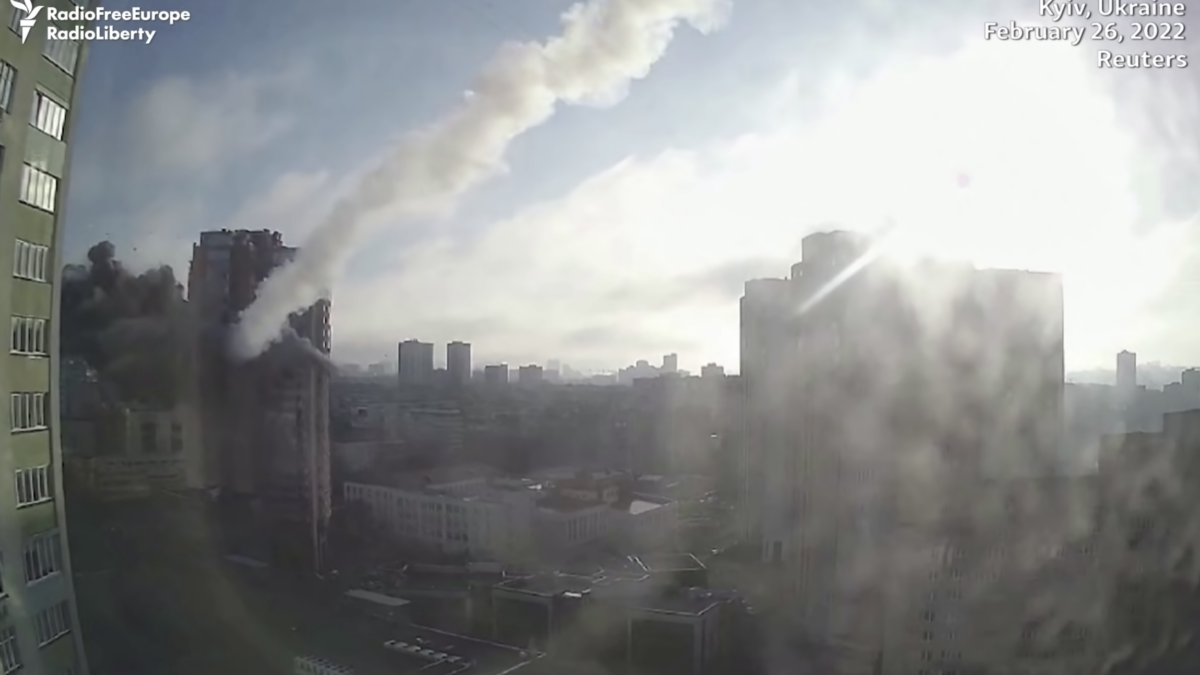Listening to news reports on Russia’s war on Ukraine, whether hard news or punditry, can be depressing — endless images of urban destruction and reports of advancing Russian forces.
Yet, it is not foreordained that Russia wins and Ukraine loses. Winning a war is not merely an exercise in numbers or technology. As General George S. Patton observed, “Wars may be fought with weapons, but they are won by men. It is the spirit of men who follow and of the man who leads that gains the victory.”
Since Russian President Vladimir Putin failed to quickly topple the Ukrainian government and kill President Volodymyr Zelenskyy, the war has widened into a contest involving almost the entire border region shared by the combatants along with the stretch of border between Belarus and Kyiv some 80 miles to the north of Ukraine’s capital city.
Much media attention has been given to Russia’s advances along the Sea of Azov in the south and on the approach to Ukraine’s third-largest city, Odessa, on the shores of the Black Sea as well as the remarkable attack that captured Europe’s largest nuclear power plant in Zaporizhzhia. These Russian successes are discouraging for Ukrainian defenders but, in the grand contest, they matter far less than the battle for Kyiv.
In the Eighteenth Century, Frederick the Great, noted: “He who defends everything, defends nothing.” In this context, Ukraine’s task is simple — not easy — but simple. It must keep a viable government, preferably in the capital city of Kyiv. To do that, Ukraine must maintain its supply lines to Poland in the west with the city of Lviv being the key transportation hub in the west. As long as Kyiv, Lviv, and the roads between them remain in Ukrainian hands, the fight can continue. As long as the fight continues, the economic pressure of Russia mounts, making it increasingly difficult to sustain both the fight and Putin’s hold on power. Thus, losses in the south are regrettable, but they are not fatal to Ukraine’s cause.
In that regard, there are fascinating signs coming out of what may be a decisive battle to the northwest of Kyiv on the long, winding, secondary road from Chernobyl. This is the road where a 40-mile-long column of Russian vehicles was spotted by satellite. Most of the vehicles are supply trucks. They would be carrying fuel, ammunition, and food for the Russian forces that have advanced to the very outskirts of Kyiv itself but have seemingly been stalled for several days.

One attribute of a good intelligence officer is the ability to “feel” the battle. To pick up clues from the chaos of combat — the pace of events and where they happen, as well as odd silences, all mean something. Creating a coherent picture from the violence can then inform decisions that can lead to victory.
Out of this come three reports that, if true, suggest the beginnings of a devastating reversal for Russian forces operating northwest of Kyiv.
First, reports today in multiple outlets that Russian Major General Andrei Sukhovetsky was killed in combat by a sniper. Sukhovetsky, 47, was an elite Russian Spetsnaz commando and veteran of Russia’s war in Syria. The commander of the Russian 7th Airborne Division, he was assigned the mission of leading the Russian thrust from Belarus to Kyiv. Men like Sukhovetsky have an outsized presence on the battlefield. They’re inspirational. Their personal leadership at the point of the spear often means the difference between victory and defeat during the fast-paced controlled violence of war. His loss would be devastating to his men and to the organizational momentum of the forces he commanded.
That Sukhovetsky was killed by a sniper suggests that he was personally trying to regain the initiative against Ukrainian forces who had fought him to a standstill.
The second report of merit is the heavy damage sustained in the town of Irpin on the northwest border of Kyiv’s city limits. The damage to this city suggests a major battle — an effort by the Russians to breakthrough. They didn’t.
The final piece of the puzzle is the Battle of Bucha. Ukrainian forces claimed the recapture of Bucha hours after the devastation visited on Irpin. The timing is important here. The Russians tried and failed to take Irpin and then the Ukrainians retook Bucha two miles to the northwest of Irpin.
These events, combined with the nearby loss of Sukhovetsky, a two-star general, suggest a reversal of fortune for the Russians in the drive that’s come closest to Kyiv and, most importantly, threatens Kyiv’s logistics links to the west.
Of significance, Ukrainian success at Bucha put their Stinger antiaircraft missiles within range of Antonov International Airport, formerly the home of the world’s largest aircraft, until it was destroyed in fighting days ago. This means that Russia will no longer be able to safely fly cargo into the airport as Bucha’s town center is only two miles south of the airport, well within the Stinger’s 5-mile range.
Yet, hours after Bucha’s apparent recapture, there were widespread reports of Russian tanks and armored personnel carriers ranging further to the west and south of Kyiv, likely probing for weak spots in the Ukrainian defense in the direction of Zhytomyr, about 100 miles to the west of Kyiv, after being rebuffed on the most direct route to the capital city.
Lastly, as more and more Ukrainians mobilize and join local defense units, the regular Ukrainian Army and their reserve forces will be freer to maneuver — to counterattack the invading Russians with a greater degree of confidence knowing that the militia has secured the cities.









